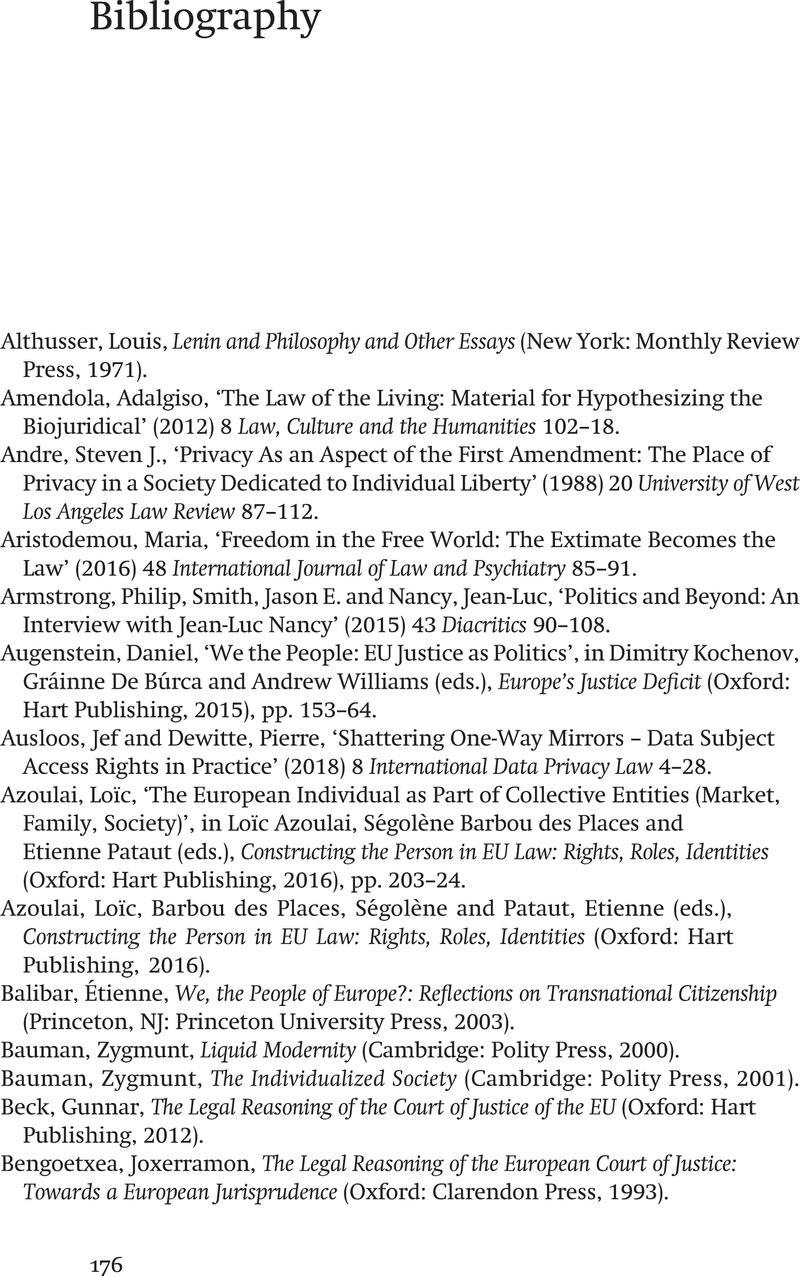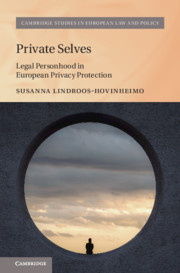Book contents
- Private Selves
- Cambridge Studies in European Law and Policy
- Private Selves
- Copyright page
- Dedication
- Epigraph
- Contents
- Series Editors’ Preface
- Acknowledgements
- Table of Cases
- Table of EU Secondary Law
- Introduction
- 1 Private Persons Are Made
- 2 The Person in Control
- 3 The Autonomous Person
- 4 The Immune Person
- 5 The Person at Liberty
- 6 The Political Person
- 7 The Person in the Community
- Conclusions
- Bibliography
- Index
- References
Bibliography
Published online by Cambridge University Press: 14 May 2021
- Private Selves
- Cambridge Studies in European Law and Policy
- Private Selves
- Copyright page
- Dedication
- Epigraph
- Contents
- Series Editors’ Preface
- Acknowledgements
- Table of Cases
- Table of EU Secondary Law
- Introduction
- 1 Private Persons Are Made
- 2 The Person in Control
- 3 The Autonomous Person
- 4 The Immune Person
- 5 The Person at Liberty
- 6 The Political Person
- 7 The Person in the Community
- Conclusions
- Bibliography
- Index
- References
Summary

- Type
- Chapter
- Information
- Private SelvesLegal Personhood in European Privacy Protection, pp. 176 - 184Publisher: Cambridge University PressPrint publication year: 2021



